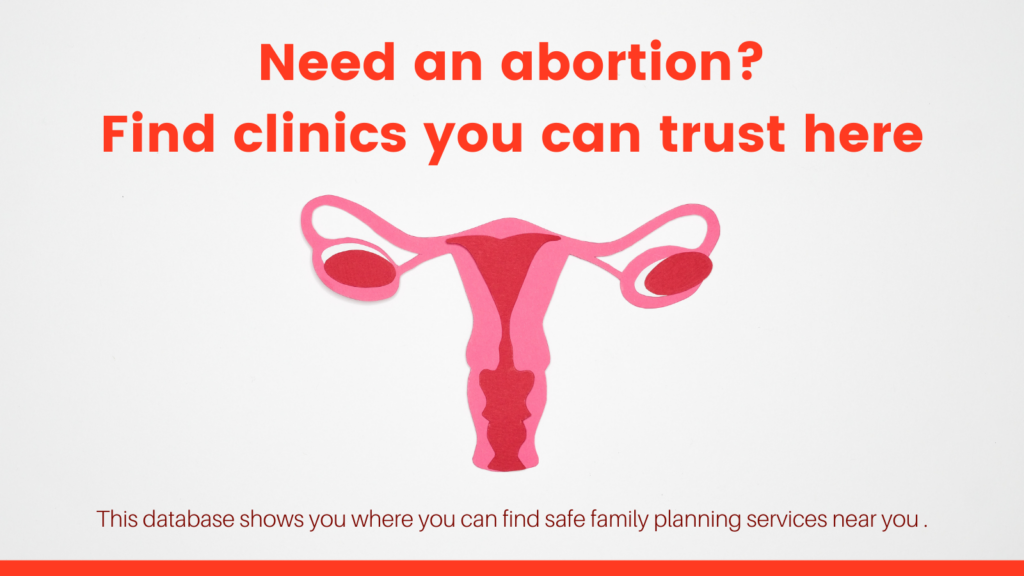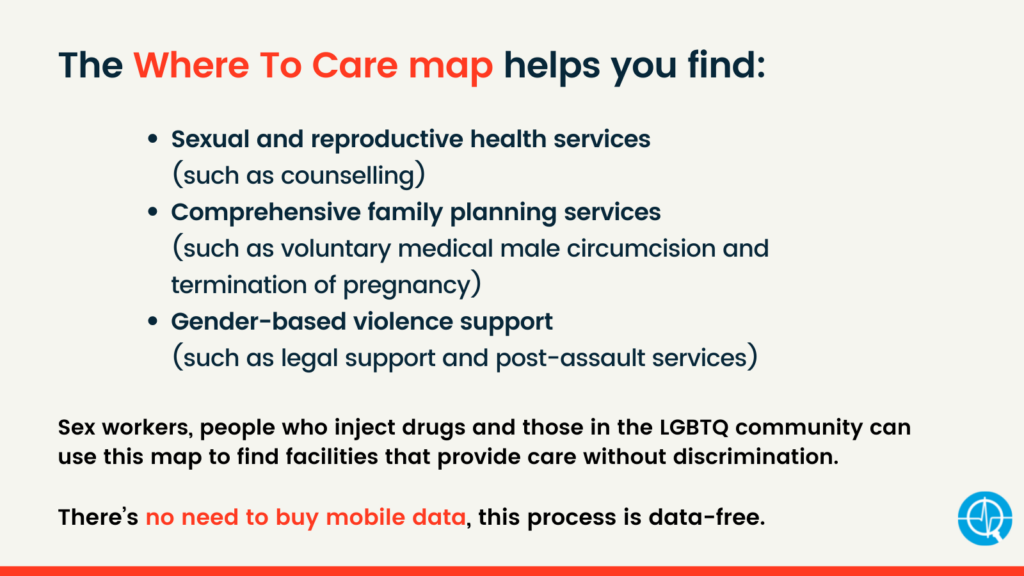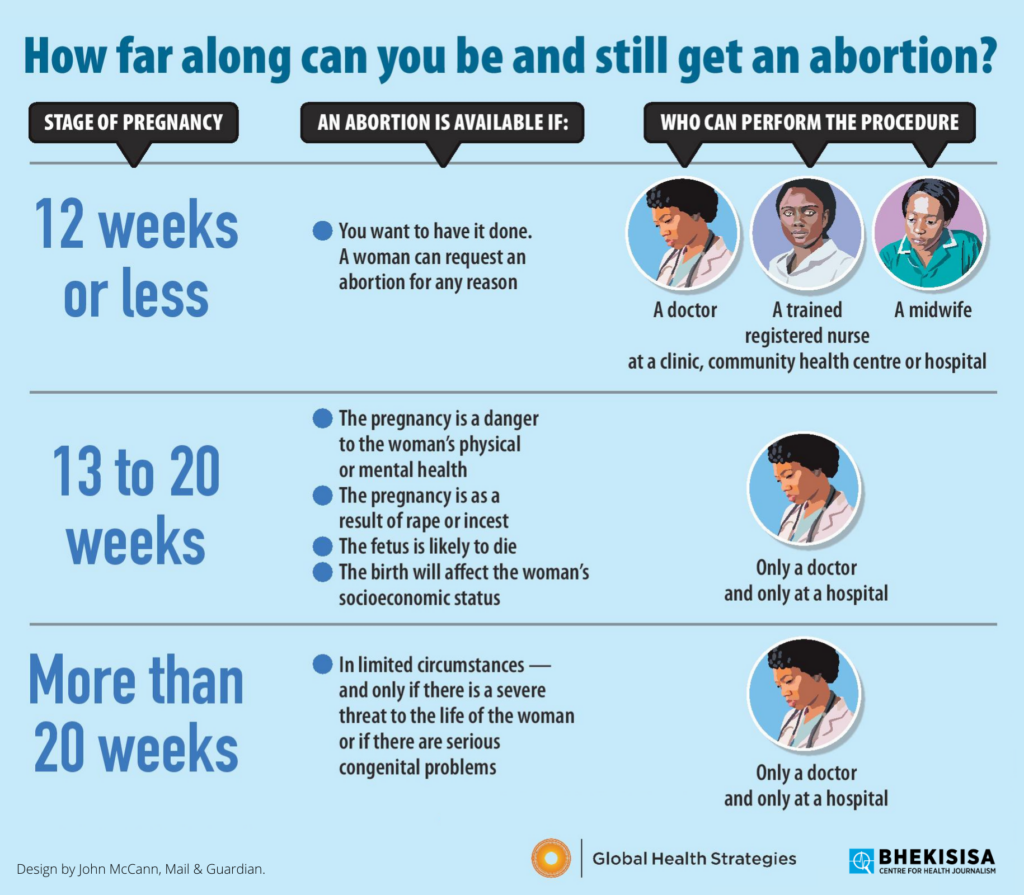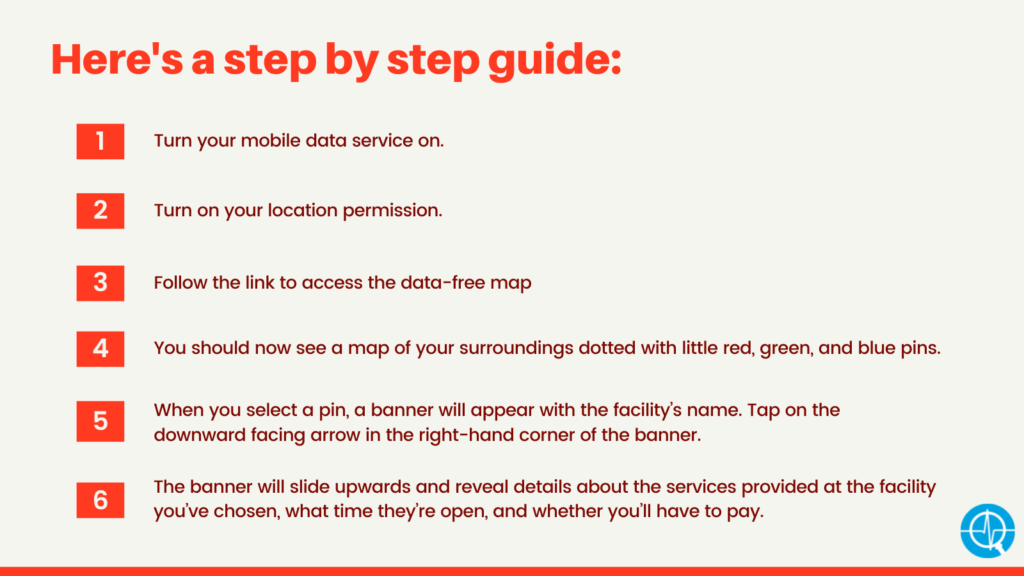(John McCann)

Bhekisisa has tried for half a decade to put together a list of government clinics in South Africa that provide free abortion services.
The reason we wanted to do this? There was no such database available for the public, and access to safe termination of pregnancy services can save lives.
Abortions are legal for anyone in the country up to 12 weeks of pregnancy and can be performed by a midwife, a registered nurse or a doctor. Doctors can provide terminations up to 20 weeks, but after that, the procedure is only allowed under certain circumstances, for instance, when the pregnancy poses a threat to the woman’s life.
In 2016, the South Africa Demographic and Health Survey found one in five pregnancies in the country were unplanned.
Public health clinics cannot deny abortion care in an emergency. According to the country’s abortion treatment guidelines, published in 2021, any state facility that has a 24-hour maternity service is allowed to provide this service, although healthcare workers with moral objections to performing abortions are allowed to opt-out as long as they refer patients to someone who will help.
But, even though abortions are legal in South Africa, 23% of deaths among pregnant women in state facilities may be as a result of unsafe abortions, reveals a 2016 report by the health economics and HIV and Aids research division at the University of KwaZulu-Natal.
Why?
Because many women still opt for unsafe terminations, which are provided by unqualified and unregistered staff and facilities. Many women use risky services as they simply don’t know that abortions are legal in South Africa, or they don’t know where to find a legal facility.
Bhekisisa’s first attempt at mapping government facilities that provide termination of pregnancy services was called #SizaMap, published in 2017. It was South Africa’s first online database of family planning services such as abortion and other contraceptive services.
But #SizaMap was outdated before it was even published.
That’s because termination of pregnancy services are fragile. Very often, they depend upon a single midwife at a facility who is willing to do the job. When that staff member leaves, the service disappears.
What’s more, #SizaMap, as a consistently updated service, was an unsustainable project — keeping the map accurate over time requires a dedicated team to phone each clinic every couple of months to make sure they still have the staff needed to offer abortions, something Bhekisisa was unable to do on its own.

Enter the HIV nonprofit Triad Trust, which specialises in health technology. It has taken the idea for #SizaMap and ironed out all the kinks.
The Triad Trust has specially trained teams of people to keep the map updated, and it has the coding know-how to make it all run smoothly.
These teams phone government and private clinics in the country every three to six months to establish if they offer termination of pregnancy services.
But this time around, we’re going a step further than mapping just abortion and other contraceptive services: the teams also document if the facilities offer voluntary male circumcision and post-gender-based violence care, as well as what those services look like.
Moreover, the mappers gauge whether sex workers, people who inject drugs and those in the LGBTQ-community will face discrimination at the clinics and hospitals.
The mappers call each facility twice to verify the information gathered (read more about this process under “Why you can trust the Where To Care map”) and the map is updated accordingly.
But even with all this expertise, there are still aspects of South Africa’s public health sector that have made collecting the data a nightmare.
Some government clinics simply don’t have listed numbers, and several don’t answer their phones — no matter how many times our mappers call or how long they let the phone ring.
For now, however, we’re excited to present a database of abortion services that we trust.
Those facilities we haven’t been able to reach are not (yet) included.
Our map is called Where to Care.

Why you can trust the Where to Care map
The information on the Where To Care Map is vetted – twice – every three to six months.
It’s updated by the Triad Trust’s team of trained mappers, which Bhekisisa helps to fund, who make thousands of calls each month to make sure the information is fresh.
For round one of verification, mappers call facilities and explain the mapping project they’re working on. Then they ask questions about the type of services offered there, including for example when services are offered and whether people can expect charges.
During round two, different mappers call the facility as a “secret shopper”, so they pretend to be a patient, to find out whether the information provided matches up.
Which services can you find on Where To Care?
● Sexual and reproductive health services (such as counselling)
● Comprehensive family planning services (such as voluntary medical male circumcision and termination of pregnancy)
● Gender-based violence support (such as legal support and post-assault services)

How does it work?
There’s no need to buy mobile data, this process is data-free. Here’s a step-by-step breakdown of how it works.
Step 1: Turn your mobile data service on
Step 2: Turn on your location permission
Step 3: Click on this link
Step 4: You should now see a map of your surroundings dotted with little red, green, and blue pins
● Red: Facilities that do not meet the safety standards for abortion
● Blue: These facilities have gone through round one of the verification process
● Green: Both rounds of verification are done
Step 5: When you select a pin, a banner will appear with the facility’s name. Tap on the upward-facing arrow in the right-hand corner of the banner.
Step 6: The banner will slide upwards and reveal details about the services provided at the facility you’ve chosen, what time they’re open, and whether you’ll have to pay.
Take note: The map on the Where To Care website is not data-free, it’s only this link that’s zero-rated, so you need to access the map via this link in order not to use your phone or internet connection’s data.

I’m struggling with this process. What do I do?
If you need assistance, you can contact Bhekisisa on any of our social media accounts. We can send you a data-free link to the map as well.
● Twitter
● Instagram
● Facebook
Where does my personal information go?
The TriadD Trust does not collect any information about the people who use the links to the map, so your privacy is ensured.
Click here for more information on their methodology and its limitations, privacy, and terms and conditions.
This story was produced by the Bhekisisa Centre for Health Journalism. Sign up for the newsletter. Bhekisisa’s work on the Where To Care map is funded by the Hivos Southern Africa Hub as part of the Regional Sexual and Reproductive Health and Rights Fund
